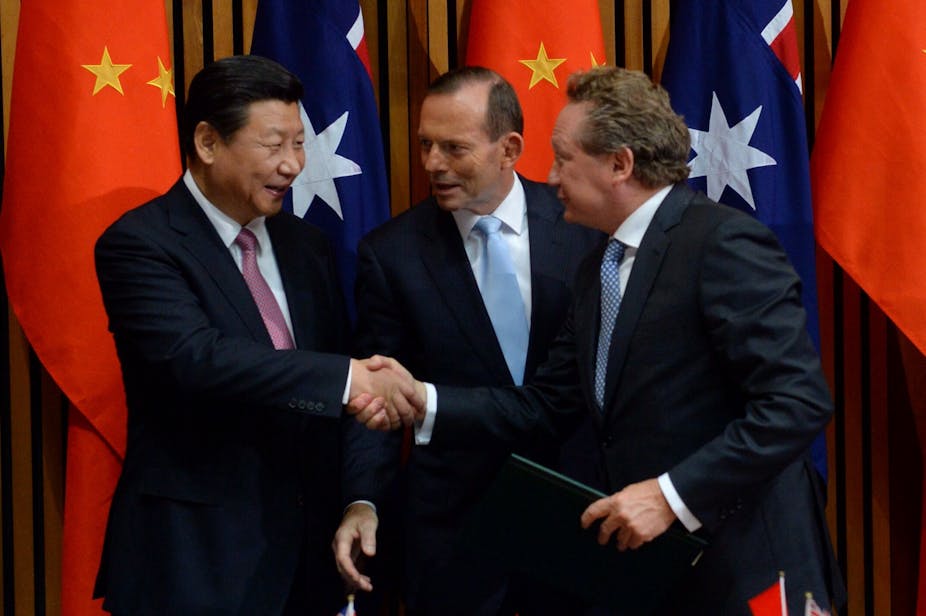Until last week, the only developed economies to have signed on to China’s proposed Asian Infrastructure Investment Bank (AIIB) were Singapore and New Zealand. The choices of those minnows of the global economy were not thought significant as all the major wealthy economies stayed away.
Then, suddenly, Britain announced it was going to sign up as a foundation member. France, Germany and Italy promptly followed.
This rush of support for the China-led initiative resulted in a rather surprising public spat between the US and the UK governments. The two long-term allies have not always agreed with one another but they have normally kept their disagreement from public.
The UK’s decision, evidently taken with little consultation with the US, was criticised in surprisingly strident terms. The UK was portrayed as kow-towing to Chinese power.
Strategic powerplay backfires
The US has for some time sought to keep its allies and friends from supporting the bank and has done so very publicly. Its stated concerns that the AIIB might undermine existing multilateral financial institutions, that it might lower standards in governance and the environment and that its decision-making processes were decidedly opaque are quite reasonable.
The problem is that the US has not been especially constructive in its attitude toward the bank and has not sought to work with China and others to resolve these problems.
The reason for this, many believe, is that lurking not far below these technical concerns about the bank’s putative structure and operation is America’s real worry: that the bank will allow China greater strategic influence in Asia.
It was these issues that led the Australian government to turn down the invitation to join. The cabinet was reportedly divided on the issue. Trade Minister Andrew Robb and Treasurer Joe Hockey were in favour of joining. Others, led by Foreign Minister Julie Bishop, argued against due to largely strategic concerns.
Now, on the back of the Europeans opting in, Australia looks poised to reverse its initial decision. Briefings and media appearances indicate that Australia is likely to join by the March 31 deadline.
This is not only the latest in a long line of backflips by an Abbott government clearly lacking in policy direction, but it is illustrative of the gravitational force that China is having on world politics.
Forced to make a choice
The Australian thinking about China’s rise has been dominated by the idea of choice. Prominent scholars and analysts argued that the changing geoeconomic balance meant Australia had to move away from its close alliance with the US to strike a better balance between its interests in the region.
However, governments of both persuasions claimed that Australia did not have to choose between China and the US. Australia’s circumstances meant that would did not have to trade off its economic and security interests.
Yet the efforts to create something that, on the face of it, should be uncontroversial – a bank to finance the region’s desperate need for infrastructure investment – has shown that hard choices do indeed have to be made. And, as a result, increasingly the US has diplomatic egg on its face as more and more allies and friends opt not to follow its lead.
The policy decision about the AIIB did not have to boil down to the kind of stark choice between China and the US that it has become. The problem is that rather than engaging in a more collaborative and consultative approach, the US very publicly opted to pressure partners to remain aloof. This created precisely the kind of zero-sum decision-making everyone had hoped to avoid.
Even if the diplomacy around the AIIB had been more deft, we cannot ignore that managing the international implications of rising great powers is very difficult. It inevitably involves hard choices.
China is so large, its interests so great and of such global consequence that it simply cannot be stitched into a set of existing international arrangements. More importantly, China has a view of the kind of international order it wants. This plainly does not conform with the views emanating from the US.
The current trajectory of Australian and American policy in Asia is informed by the misguided notion that China can and should conform to the prevailing institutions and structures, and that everyone’s interests can be reconciled within the current order. The messy diplomacy around the AIIB’s formation shows that this thinking is at best misguided and at worst positively dangerous.
If these latest developments do not prompt some change in both tactics and strategy, the region will change much more quickly and in ways Australia and the US do not like.

